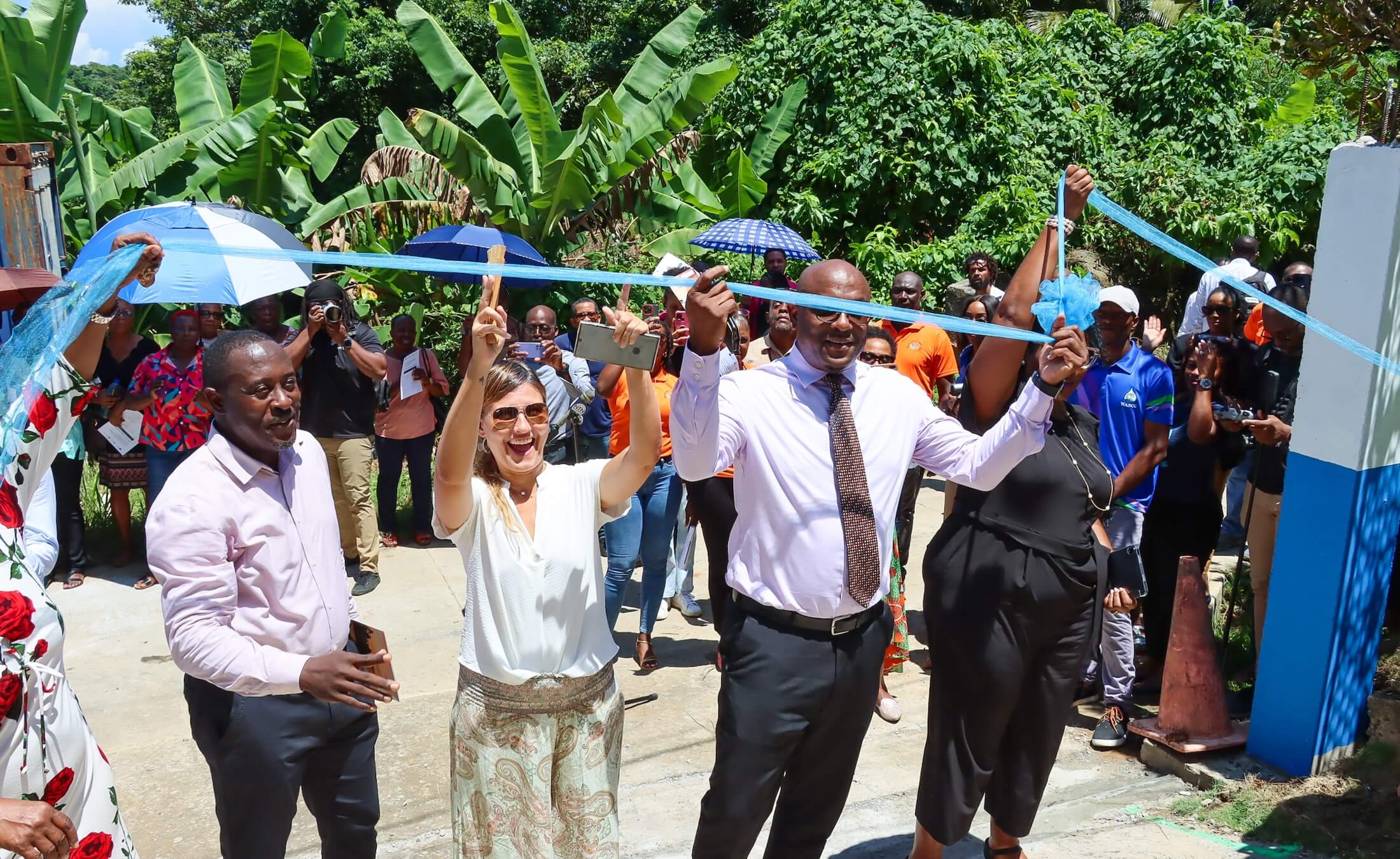The remote northern community of Desbarras in Saint Lucia is celebrating a significant milestone with the arrival of clean, high-quality water. This improvement comes thanks to a new water treatment plant handed over in a recent ceremony attended by Dr. Virginia Albert-Poyotte, Parliamentary Representative for the Babonneau Constituency and Minister for Public Service, Home Affairs, Labour, and Gender Affairs.
Dr. Albert-Poyotte emphasized the plant’s importance, highlighting its transformative impact on a community that has long faced water challenges. She explained that Babonneau, historically referred to as a “ridge of water,” was once a major water source for northern Saint Lucia. However, the construction of the John Compton Dam in the 1990s shifted the supply dynamics. Over time, the dam has struggled with heavy siltation due to climate-related events such as hurricanes and torrential rains, creating water shortages that deeply affected communities like Desbarras.
A Lifeline for a Vulnerable Community
Home to approximately 250 residents, Desbarras is both geographically isolated and costly to maintain. The new water facility has greatly improved the situation, reducing the community’s dependence on the Water and Sewerage Company Inc. (WASCO). “The people of Desbarras are incredibly fortunate,” Dr. Albert-Poyotte remarked, “as their water now comes from the original source, bypassing WASCO’s treatment process.”
She added that residents often complained about the poor water quality in the past, frequently sharing their concerns through platforms like WhatsApp. “Now, with this facility, their water is of superior quality, and I know they are relieved and happy,” she said. Highlighting the broader context, she noted, “In an era of global climate change, having access to this level of water quality is a privilege.”
National and Regional Collaboration
Honorable Shawn Edward, Minister for Education, Sustainable Development, Science, Technology, and Innovation, also addressed the gathering, commending the partnership between the Caribbean Community Climate Change Centre (CCCCC), the European Union (EU), and other stakeholders. He stressed the immense challenges posed by climate change, stating, “It impacts all areas of national development—tourism, agriculture, education, health, and especially the water sector.”
He emphasized the reliance of small island developing states like Saint Lucia on international partnerships to achieve sustainable development goals, adding, “Collaborations like these help us tackle the existential threats we face from climate change.”
The Desbarras water treatment plant, valued at 1.06 million XCD, is part of a trio of climate-resilient water sector projects funded through the collaboration of the CCCCC, the OECS Commission, WASCO, and the EU.
A Climate-Friendly Solution
Speaking on behalf of the EU, Susana Fuertes, Programme Manager for the Climate Change Green Deal Partnership, underscored the importance of partnerships in achieving tangible results. “Working together ensures projects like this one come to life,” she said. Fuertes also highlighted the solar-powered nature of the facility, noting its dual benefits: providing clean, safe water while reducing reliance on fossil fuels. “This plant ensures reliable water supply regardless of weather conditions—and it’s powered by the sun!”
Improved Capacity and Long-Term Benefits
The new plant has significantly increased Desbarras’ water storage capacity from 10,000 gallons to 25,000 gallons. This makes it the largest infrastructure investment in the community’s history. Chamberlain Emmanuel, Head of the Environmental Sustainability Division at the OECS Commission, praised the EU’s generosity and acknowledged the critical role WASCO played in overcoming challenges to deliver the project.
“The success of projects like this demonstrates the relevance of regional organizations like the OECS to everyday lives,” Emmanuel said, adding that such initiatives create direct benefits for local populations.
Securing a Sustainable Future
The water treatment facility, tapping into nearby mountain sources, ensures a reliable supply of clean water for the people of Desbarras, reinforcing their resilience against climate impacts. This achievement underscores the value of international cooperation and sustainable development efforts in addressing the challenges faced by vulnerable communities.
With this new flow of clean water, Desbarras residents are not only securing their water future but also setting an example of what can be achieved through collaboration and innovation.
